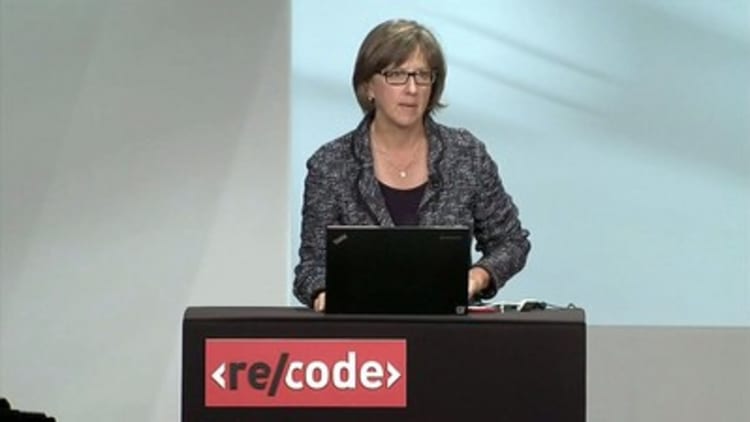
Mary Meeker, a partner at Kleiner Perkins, never much mentioned the medical sector in years past in her massive annual report on the future of the Internet. But this year, health care was a standout star with its own section.
It's not all that surprising, given the rising interest from venture firms in the estimated $3 trillion sector. In 2016 alone, venture investors poured $4.2 billion into health-technology startups, according to the venture firm Rock Health.
This year, internet in health-technology is showing no signs of letting up with Silicon Valley's venture capital firms increasingly hiring bio experts to help guide their investments, like computational biologists and doctors. Some tech firms are diving into regulated areas, in funding new diagnostic tests and drug discovery tools, while others are focusing on fitness, wellness and concierge medical care.
Here are the highlights from the talk, which demonstrates how the tech sector thinks about opportunities in the space:
- Health data is going digital. The report cites a few examples of that, including measurements like blood pressure and electrocardiograms, which were once recorded on paper. Adoption of electronic medical records is also skyrocketing, in large part due to health reforms under the Obama Administration. And consumers continue to collect their own digital health data via wearables and apps.
- Hospitals and doctor's offices are finally starting to offer patients digital access to their own information. It's still early days in this trend, but it's happening in part due to pressure from technology companies and patients rights groups. Apple recently made it possible for consumers to access their medical records on a smartphone (more typically, it's shared on a CD-ROM or USB drive).
- Consumers are ordering more blood tests than ever before. Not mentioned in the presentation: The regulation hasn't caught up with this trend. Many lab tests are still in a regulatory grey area, meaning they can avoid federal oversight. That might well change in the coming years. It's also a trend that is concerning to many doctors, as any test comes with a risk of false positive or negative results.
- Hospitals increasingly have data storage and security needs on par with other industries. Meeker suggests that hospitals will have to deal with an average of 50 Petabytes of data.
- There's been a steady growth in clinical trials, which has attracted the interest of big tech companies. Apple's ResearchKit, for instance, is bringing us closer to mobile-based clinical trial recruitment. Moreover, with better data, Meeker cites research that suggests we can speed up the time it takes to bring a new drug to market.
- The rapidly-dropping price of whole genome sequencing has made Moore's Law look sedate. What cost hundreds of thousands, or even millions of dollars, just over a decade ago is now available for a few thousand dollars. Applied genomics has taken off, with more diagnostic tests on the market for genetic diseases than ever before.


